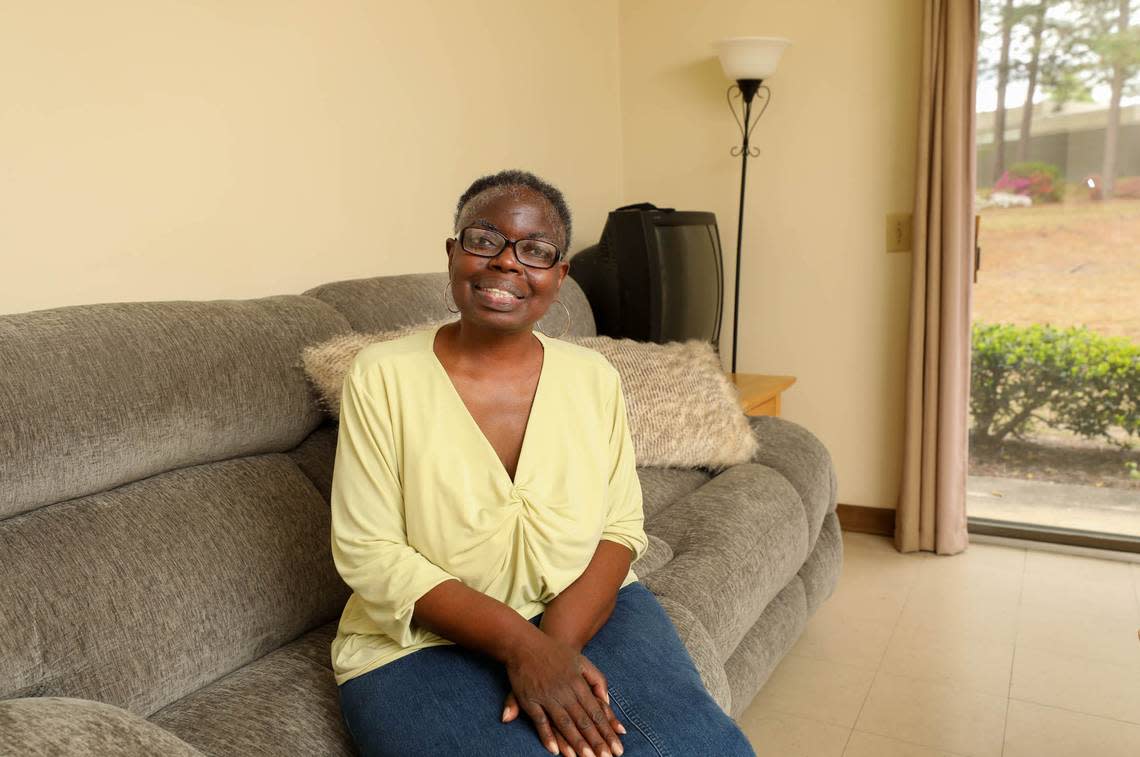Hundreds with disabilities earn below SC’s minimum wage. That practice could end

Hundreds of South Carolinians who live with intellectual and physical disabilities are earning well below South Carolina’s minimum wage, which critics say does nothing but violate their civil rights for sometimes hours worth of work performed each week.
That decades-long practice could be soon be phased out in three years under legislation that needs support from one more chamber and the governor to become law.
State Sen. Katrina Shealy, a Lexington Republican who sponsored the legislation to do away with a federal certificate that allows community providers to contract with companies and pay a subminimum wage, said the practice does nothing but “take advantage” of people.
In a survey, 18 of 32 providers told the state Department of Disabilities and Special Needs it held that certificate, employing 838 people on 119 contracts with businesses, according to the bill’s fiscal analysis. Before COVID-19, the number of South Carolinians with disabilities earning below the minimum wage was more than 1,000 on more than 200 contracts.
Angela Greene, 47, was once one of those workers, sometimes bringing home $59 or $23 a week for a varied schedule of work in Manning that included cleaning offices, hotels and motels. Greene has had an intellectual disability since she was young but does not consider herself disabled, she said.
Through help and through God, Greene said, she found a new job as a dining attendant at the University of South Carolina.
She takes out the trash and wipes down tables and sweeps floors, but she is now earning a livable wage and interacting with people.
“It’s no fun I can tell you that,” said Greene, who for 21 years worked at a sheltered workshop, five days a week earning $3 per hour. “You contribute to society, but then again you feel like you’re not contributing, you’re not distributing the potential that you have.”
At least eight states have done away or are phasing out subminimum wages.
South Carolina is one of at least a dozen states considering legislation to do away with the practice of allowing providers claim a specialized certificate through the 1938 federal Fair Labor Standards Act. Those providers, spread out across the state, then contract with big and small companies, which, through the contract, then pay people with intellectual and physical disabilities under the federal $7.25 per hour minimum wage.
Many state legislatures have clawed back laws allowing the subminimum wage work, and providers themselves have opted not to connect subminimum wage workers to companies.
Members of Congress also have tried to eliminate the practice but have not been successful.
“That may have been something that was thought good public policy back in the 1930s when the Fair Labor Standards Act allowed a subminimum wage to be paid,” said state Sen. Tom Davis, R-Beaufort.
But, Davis said, with the advances made and the ability of people with disabilities to meaningfully participate in the workforce, “there should no longer be a special section that allows that class of individuals to be treated differently,” Davis added.
Senators expressed concern that by eliminating the practice, companies will cut off contracts with providers, choosing no longer to hire people with disabilities to perform work that otherwise could be absorbed into another job.
“I’m sure there’s probably some out there who are looking at the bottom dollar and cheap labor,” said state Sen. Dwight Loftis, R-Greenville, who questioned what ending the practice might do. “Will the employers continue to use them, and will they just be sitting (at) home and sitting and doing nothing all day? That’s my concern.”
That is why, beyond phasing the practice out by August 2024, Shealy’s bill also would form a task force to ensure there are no unintended consequences, Davis said.
“Our intention is not for anyone to go unemployed or be left with no services,” said Kimberly Tissot, head of disabilities advocacy organization, Able South Carolina, which has lobbied the Legislature to end the practice for about six years. “It’s very much frowned upon by the entire disability community, by actual people with disabilities. We’re citizens just like everyone else.”
Now out of the Senate, the bill will get its first hearing in the House’s Labor, Commerce and Industry Committee.
“I just need the (state) House to get excited about,” Shealy said. “Session is drawing to a close.”

 Yahoo Movies
Yahoo Movies 
